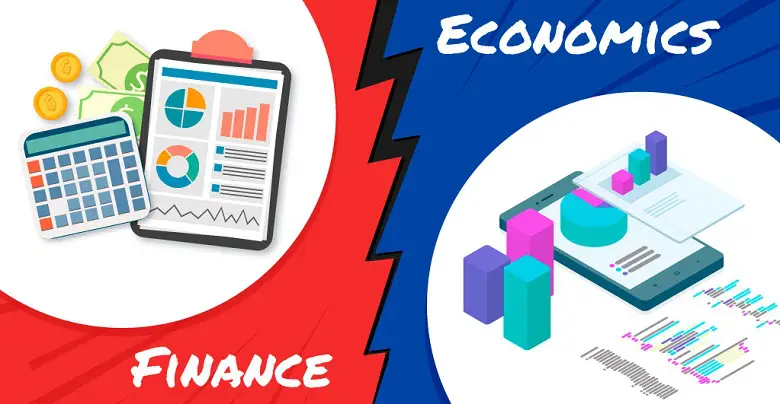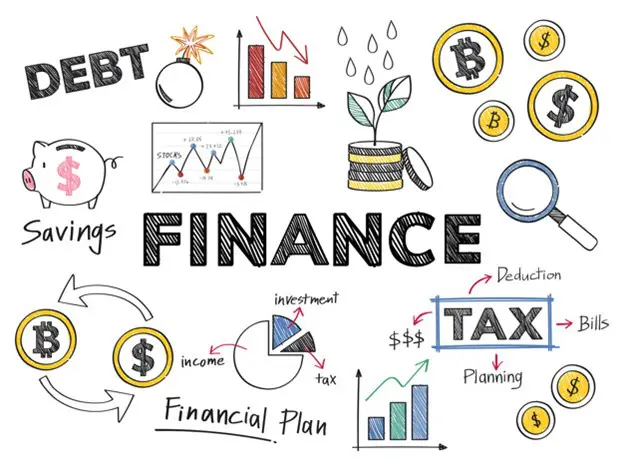Finance Vs. Economics – A Comparative Study

- Economics is all about goods & services’ production, consumption, and distribution. On the other hand, finance looks into money-flow through personal, business, and consulting firms.
- Economics and Finance are business-connected courses. The difference between finance and economics lies in the content and scope.
Major in economics also includes financial theory; therefore, economics is better than finance. One can opt for combined or double majors by taking financial economics and reap from both. It is easier for one to decide what to take from a broad category such as science, arts, or economics. But on average, many get confused about the difference between finance and economics. For your ease of understanding, we have broken down the information in two to help you decide the differences and see what draws your interest.
Info about finance
 When it’s about finance vs. economics, finance is a branch of economics describing and studying money by fund managers, including how money is managed, how it is created, aspects of investment banking, credit, and the study of assets and their liabilities constituting the financial investments and instruments. Further, it can be categorized into a corporation, public, and personal finance. The subject of finance studies concepts such as time value of money, interest rates, cash risk & returns, and how to use money optimally, the different types of exchange rates while making the best use of their features, business revenues, and debts for a company.
When it’s about finance vs. economics, finance is a branch of economics describing and studying money by fund managers, including how money is managed, how it is created, aspects of investment banking, credit, and the study of assets and their liabilities constituting the financial investments and instruments. Further, it can be categorized into a corporation, public, and personal finance. The subject of finance studies concepts such as time value of money, interest rates, cash risk & returns, and how to use money optimally, the different types of exchange rates while making the best use of their features, business revenues, and debts for a company.
Besides helping to understand the corporate market, finance helps one understand personal money management, including making money grow, insurance, planning mortgage, better savings, budget-based activities, tools & applications to monitor spending and retirement plans. Public finance includes government systems of tax, expenditures, budget processes, stabilization instruments and policies, debt-related issues, and other concerns. Finance professionals can work as Investment Bankers with an investment banking course.
Besides, university education can implement techniques to increase capital for an organization or banks, individuals, or the government, for example, JPMorgan Chase, Morgan Stanley, Goldman Sachs, etc. Actuaries study insurance risks, while Financial Analysts, with their master’s degree, possess skills to deal with economies, market accounting, and compliance and laws requirements. The Venture Capital Analyst roles include being able to network, observing the latest industry trends, and seeing target companies. The CFO’s expertise is to oversee the cash-flow, compile reports on financial weaknesses, strengths, and complexity of companies while proposing corrective remedies with explanations. Portfolio Management includes having qualifications as hedge funds managers to guide the investor and shareholders, and Risk Analyst management includes curbing losses and managing unpredictability for corporations. A Chartered Financial Analyst with a CFA institute-based accountancy course can work in an accounting or retail firm and look into employee compensation.
Info about economics
 This deals with the country, regional, or state economy affecting the entire sector or industry’s money cycle. In finance vs. economics, understanding economics is better. It helps in studying policies and strategies structure affecting the market behavior and the policy changes that affect the various markets. As a better option in Finance vs. economics, economics is a social science dealing with the production-consumption and distribution of goods and services, explaining the workings of different economies, their wealth, and people’s interaction. The main branches include microeconomics and macroeconomics.
This deals with the country, regional, or state economy affecting the entire sector or industry’s money cycle. In finance vs. economics, understanding economics is better. It helps in studying policies and strategies structure affecting the market behavior and the policy changes that affect the various markets. As a better option in Finance vs. economics, economics is a social science dealing with the production-consumption and distribution of goods and services, explaining the workings of different economies, their wealth, and people’s interaction. The main branches include microeconomics and macroeconomics.
Microeconomics deals with economic tendencies that an economist studies that are dependent on changing market conditions or individuals’ choices. If a manufacturer increases a product’s price, people will likely buy a lesser amount. Macroeconomics studies collective economy behavior, including economic growth, national income & wealth, inflation, GDP/gross domestic product, and unemployment changes. Some of the many career options in Economics include employment in financial and investment colleges, including banks, policy & research institutions, corporate or multinational enterprises, university, government enterprises as funds manager, data analyst, statistician, economist, etc.
Economics vs. Finance – Differences
| Finance | Economics |
| Corporate Finance functions at the micro and macro level, i.e., individual and corporate level. | The social science of economics works at a macro level regarding a country, region, state, or industry level. |
| Deals with topics like finances, investments, budgeting, decisions, and methods to maximize profits using different tools. | Deals with topics such as creation, policy amendments affecting markets, inflation, and industries. |
| Decision authority prevails at all levels affecting various types of products and situations. | Decision authority remains with the legal institutions and government. |
| It acts on different products’ factors, calculating money value after a period and viable methods providing the best possible money value, dependent on different factors. | Economics offers different strategies and theories that aid in making a company, sector, and industry framework with wider money policy characteristics. |
| It occurs at an economy’s root levels, including the household level regarding personal finance management. | Economics prevails at higher levels that include economists’ decisions affecting the whole economy over the root level. |
| Financial decisions can be made and amended easily at the individual or at corporate level. | Economists deal with economy-related decisions that cannot be made or changed easily. These economists need a high level of quantitative analysis as they affect the entire economy. |
| It is a subgroup of Economics. | It covers Finance. |
Final Thoughts
After considering all the aspects, the difference between finance and economics, highlight how these fields work and make their money. Economics is considered as a bigger picture that deals with actual resources. At the same time, the focus of finance is more on money management. Now that you have known about two vital aspects of the monetary world, do read more about our other such interesting comparison about business administration vs. business management.
Frequently Asked Questions
Is finance better than economics?
Though the terms finance and economics are a part of the business field and have qualities of each other, there are some differences in spectrum and content. When deciding on the pursuit of Finance vs. Economics courses, an Economics degree is better than finance as it covers the financial theory subject. Students can opt for combined or double majors by taking financial economics and gain from both. Economics finance fundamentals teach market analysis that covers financial analysis as it covers every aspect of life. It includes trade-offs, economic theory, pricing, and choices that allow a better understanding of business workings, including governments and firms, and decisions at the individual level on monetary policy and spending. Economics covers both micro and macro levels. On the other hand, finance only touches an area of it. Studying economics includes in-depth knowledge of both.
What are the five principles of finance?
The finance principles include risk & return, TVM, cash flow, profitability & liquidity, diversity principles, and hedging.
What are the different types of finance?
Finance includes leverage or debt, investment banking, investments, financial markets, credit, management, etc. It includes public or personal, government, and corporate finance. Microeconomics and macroeconomic theories cover financial concepts. Financial services include processes that help businesses and consumers to get financial goods and commodities. The financial services sector is the chief driver of a country’s economy. We hope our article proves helpful for you. Click here to know more about such interesting articles that distinguish vital aspects from the world of finance.



